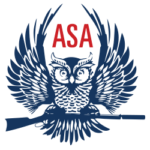SINCE THE ASA’S FORMATION IN 2011:
18 states have legalized suppressor hunting
3 states have legalized suppressor ownership
THE ROLE OF SUPPRESSORS
Suppressors, also known as silencers, are the hearing protection of the 21st century sportsman. Despite common misconceptions, suppressors are not silent. They are simply mufflers for firearms, which function by trapping the expanding gasses at the muzzle and allowing them to slowly cool.
SUPPRESSOR LEGALITY AND OWNERSHIP
Suppressors are regulated under the National Firearms Act (NFA) of 1934, which falls under the purview of the Bureau of Alcohol, Tobacco, Firearms and Explosives (ATF). To legally purchase or possess a suppressor you must:
- Be at least 21 years of age to purchase a suppressor from a dealer.
- Be at least 18 years of age to purchase a suppressor from an individual on a Form 4 to Form 4 transfer (contingent on state laws).
- Be at least 18 years of age to possess a suppressor as a beneficiary of a trust or as a member of a corporation (contingent on state laws).
- Be a resident of the United States.
- Be legally eligible to purchase a firearm.
- Pass a BATFE background check with a typical process time of 8 to 10 months.
- Pay a one time $200 Transfer Tax.
- Reside in one of the 42 states that currently allows civilian ownership of suppressors.
BENEFITS OF SUPPRESSORS
HEARING PROTECTION
Noise induced hearing loss and tinnitus are two of the most common afflictions for recreational shooters and hunters. Everyone knows that gunfire is loud, but very few people understand the repercussions that shooting can have on their hearing until it’s too late.
Suppressors reduce the noise of a gunshot by an average of 20 – 35 dB, which is roughly the same as earplugs or earmuffs. By decreasing the overall sound signature, suppressors help to preserve the hearing of recreational shooters, hunters, and hunting dogs around the world.
SAFER HUNTING
Most hunters do not wear hearing protection in the field because they want to hear their surroundings. The trouble is, exposure to even a single unsuppressed gunshot can, and often does, lead to permanent hearing damage. Suppressors allow hunters to maintain full situational awareness, while still protecting their hearing. The result is a safer hunting experience for the hunter, and for those nearby.
NOISE COMPLAINTS
As urban developments advance into rural areas, shooting ranges and hunting preserves across the country are being closed due to noise complaints. Although it can still be heard, suppressed gunfire helps mitigate noise complaints from those who live near shooting ranges and hunting land.
ACCURACY
One of the most common problems for shooters is decreased accuracy caused by flinching in anticipation of the firearms discharge and recoil. By containing the explosion of the gunpowder at the muzzle, suppressors reduce recoil, and help decrease muzzle flinch. These benefits lead to improved accuracy, better shot placement, and more humane hunts.







